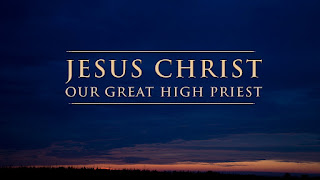Now on the first day of the week Mary
Magdalene came to the tomb early, while it was still dark, and saw that the
stone had been taken away from the tomb. So she ran and went to Simon Peter and
the other disciple, the one whom Jesus loved, and said to them, “They have
taken the Lord out of the tomb, and we do not know where they have laid him.” So
Peter went out with the other disciple, and they were going toward the tomb. Both
of them were running together, but the other disciple outran Peter and reached
the tomb first. And stooping to look in, he saw the linen cloths lying there,
but he did not go in. Then Simon Peter came, following him, and went into the
tomb. He saw the linen cloths lying there, and the face cloth, which had been
on Jesus’ head, not lying with the linen cloths but folded up in a place by
itself. Then the other disciple, who had reached the tomb first, also went in,
and he saw and believed; for as yet they did not understand the Scripture, that
he must rise from the dead. Then the disciples went back to their homes. (John 20:1-10 ESV).
The use of the Ichthys symbol by early Christians appears to date from the end of the first century. Ichthus (ΙΧΘΥΣ, Greek for fish) is an acronym, a word formed from the first letters of several words. It stands for "Jesus Christ God's Son Savior," in ancient Greek "Ἰησοῦς Χριστός, Θεοῦ Υἱός, Σωτήρ." Additionally, in the first three centuries of severe persecution, Christians used this symbol to identify each other. They would casually draw half of the Ichthus, the fish, in the dirt or sand. If the other person responded by drawing the other half, it was good. If they did not, it was just an idle doodle. In many churches today believers will greet one another with “Christ is risen!” and the response will be “He is risen indeed!” Whatever our tradition is, we should join centuries of Christians in marking this day as the day that changed everything. We celebrate the amazing truth that although Jesus was dead, he’s now alive forever. Christ Jesus rose victorious over death. He is risen!
It’s interesting to
notice how John, the gospel writer, anchors the event of the resurrection to a
day, a time, and a witness. On a particular day in history, early in the
morning, while it was still dark, Mary Magdalene saw that the stone had been
moved away from Jesus’ tomb. John wants to be clear. The resurrection of Jesus
happened on earth’s soil, in our time, for the benefit of us humans whom God
created and loves. Because Jesus is risen, life for us is forever anchored in
good news. Christ’s resurrection gloriously demonstrates that God’s sovereign
love has the last word. As a powerful hymn puts it, “No power of hell, no human
plan, can ever pluck me from his hand.” We now live in the joyful assurance
that because Christ lives, we too will live for all eternity.
Christ is risen! He is
risen indeed!





















